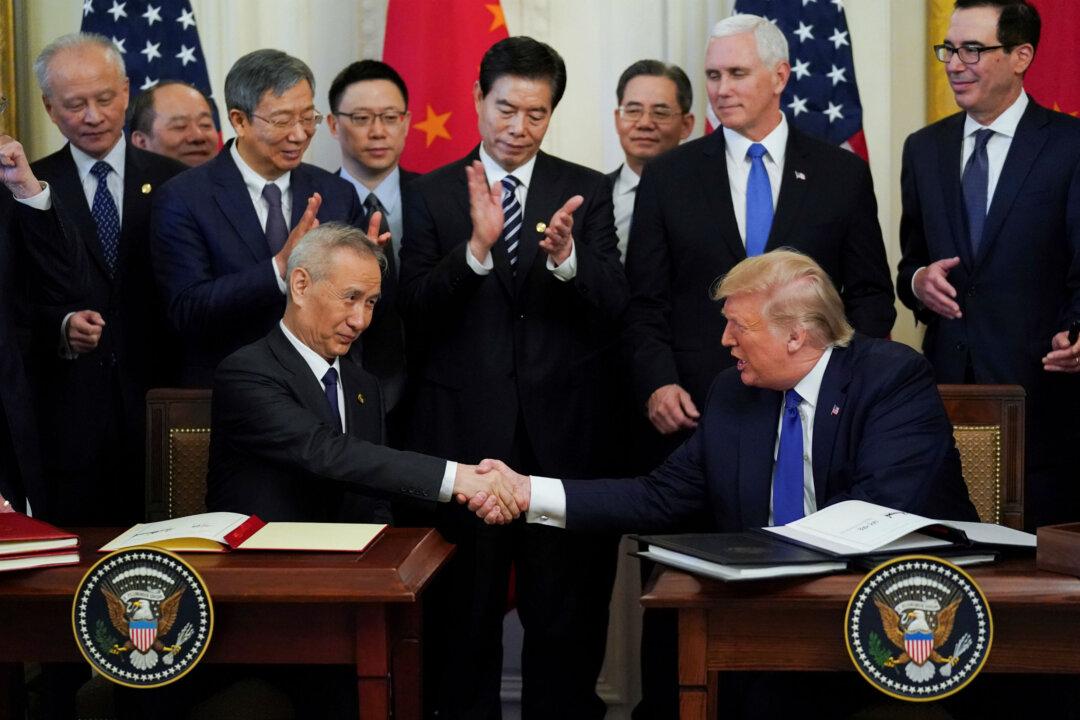WASHINGTON—The United States has turned a corner in its relations with the Chinese communist regime, and trade relations are destined after the election to follow the course laid down by the Trump administration—no matter who wins—experts say.
As a U.S. senator and then as vice president, Joe Biden had been a strong supporter of free trade with China. The Democratic candidate played a crucial role in China’s accession to the World Trade Organization in 2001.





